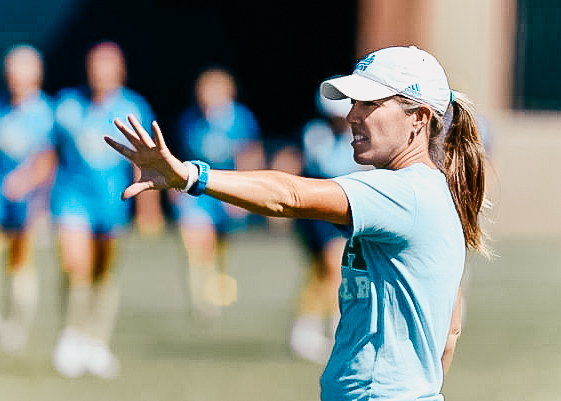
It should not be underestimated just how significant it is to find the right coaching staff for your needs.
Multiple factors determine the outcome of your decision to accept an offer from a College. The finances will play a big part, as will the athletic standard that the school competes at and the academic courses available. Read more on this blog about College Recruiting!
But this article is intended to emphasise just how crucial it is for you to consider the impact that a coaching staff can have on your College experience!
Strong Rapport is Key
As with any introduction to someone new, the first impression is very important. Whilst the College coaches are subconsciously assessing you when you first talk on the phone, you must do the same with them. College coaches operate in different ways; some will be extremely outgoing and lead the conversation. Others may be more reserved and want to hear more about you as an individual. Neither is necessarily right or wrong, but it comes down to your own preferences.
Ultimately, you need to have a strong connection with the coaching staff you’re in talks with. That goes for the Head Coach and the Assistant Coach/Coaches. You will feel all the more confident when making a final decision if you feel comfortable with the coaches to begin with. After all, they are people that you’ll be seeing a LOT of during your time as a student-athlete!

Your Coach will take on numerous roles in addition to developing you as an athlete!
More Than Just a Coach!
In reality, your College coach will wear a number of different hats. To begin with, they’re involved with your recruitment and selling their university and team to you. Once you’re there, they are tasked with improving you as an athlete and helping you to succeed, competitively. But it’s also their job to ensure that you have everything you need to triumph in the classroom. They are judged not just on winning percentages and titles, but also by graduation success rates within their squad. Therefore, it’s vital for them to help you do well, both athletically and academically. Listen to our Podcast Episode with St. John’s University Women’s Soccer Head Coach, Ian Stone!
In addition, your coach will also adopt the role of a mentor at times during your College career. They’ll be the person you speak with if you’re having a tough time, or need to speak about private matters. A good coach will know when you’re not feeling 100% or if something is wrong. They’re there to help you.
At some Colleges, coaches may also teach part-time in certain subjects. Depending on what subjects you have scheduled, you may end up being a student in one of their classes. Needless to say, they will be on your back more than ever to make sure you score an ‘A’ grade in that particular course! 🙂

Coaching styles can differ, do your homework and ask the relevant questions!
Consider Which Coaching Style You Prefer
We’ve all had different coaches throughout our lives. Whether that be someone’s parent (maybe even your own), a PE teacher, club coaches or otherwise. One thing for sure is that you will no doubt have coaches that you enjoyed working with, and some that you didn’t.
It’s difficult in this case, because there is an element of hope and trust that the coach you’re committing to will be the right fit. But you can certainly do your due diligence in order to know as much as possible about the coaching staff.
If you tend not to perform as well under a coach that is very strict, then you need to factor this in to your decision-making. Perhaps you do like an authoritarian figure in charge of your development – so a more relaxed, laid-back coach wouldn’t be the best fit.
*Top Tip – If it’s mostly the Assistant Coach that you’re communicating with during the recruiting process, that’s perfectly normal. But it’s also a good idea to request a call or two with the Head Coach as time moves along. The same goes for the other way around – get to know the whole coaching staff!

Find out more about the coaching staff through speaking with current athletes on the team!
Who Better to Ask About a Coach than the Athletes?
Alongside speaking to the coaches on video calls numerous times, you should ask to speak with current team members. Wherever possible, ask to speak to different athletes on the team. For example, a senior (a fourth year student that has been there a long time) and a Freshman/Sophomore (first or second year student that is newer to the program).
Check the performance stats from the previous season and see who was a key performer on the team. While these individuals could be great to speak to, they are also likely to be happy there if they feature heavily in the coach’s plans. But what about the squad member that isn’t involved as much or travelling to competitions? What’s life like at that College for them? It’s also great to speak with any international athletes on the team, especially if they’re from the same country as you! Read more on A Day in the Life of a College Athlete!
Conclusion
In the end, you don’t need to wait to find a College coach that you absolutely love. Your coach is someone that you need to respect and believe in. It’s about striking a balance between identifying the coach that can take you to the next level, while also achieving that in a way that enables you to feel cared for and motivated to succeed every day.

Lastly, a coach can have an enormous impact on your life – trust your instinct!



